Search the Special Collections and Archives Portal
Search Results
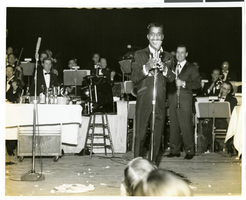
Photograph of Sammy Davis, Jr. performing at the Copa Room in the Sands Hotel, Las Vegas, April 1966
Date
Archival Collection
Description
Sammy Davis, Jr. performing at the Sands Hotel in April 1966.
Image
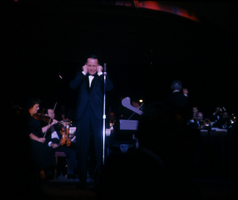
Slide transparency of Frank Sinatra onstage at the Sands Hotel, Las Vegas, circa 1960s
Date
Archival Collection
Description
Frank Sinatra performing in the Copa Room at the Sands Hotel in the 1960s.
Image
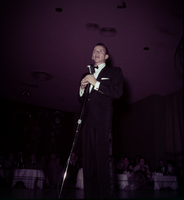
Film transparency of Frank Sinatra onstage in the Copa Room, Sands Hotel, Las Vegas, circa 1960s
Date
Archival Collection
Description
Frank Sinatra performing in the Copa Room at the Sands Hotel in the 1960s.
Image
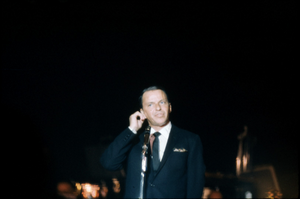
Slide transparency of Frank Sinatra onstage at the Copa Room in the Sands Hotel, Las Vegas, February 1963
Date
Archival Collection
Description
Frank Sinatra performing at the Copa Room in the Sands Hotel in February 1963.
Image
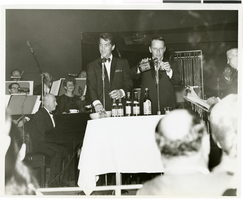
Photograph of Dean Martin and Frank Sinatra onstage at the Copa Room in the Sands Hotel, Las Vegas, January 22, 1964
Date
Archival Collection
Description
Dean Martin on opening night at the Copa Room on January 22, 1964. Frank Sinatra, at right, pours a drink from a bar onstage.
Image
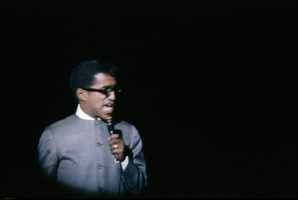
Slide transparency of Sammy Davis, Jr. singing at the Sands Hotel, Las Vegas, February 1963
Date
Archival Collection
Description
Sammy Davis, Jr. performing at the Copa Room in the Sands Hotel in February 1963.
Image
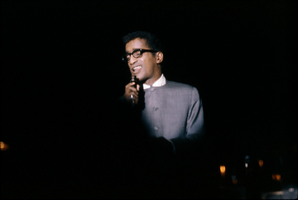
Slide transparency of Sammy Davis, Jr. performing in the Copa Room of the Sands Hotel, Las Vegas, February 1963
Date
Archival Collection
Description
Sammy Davis, Jr. performing at the Copa Room in the Sands Hotel in February 1963.
Image
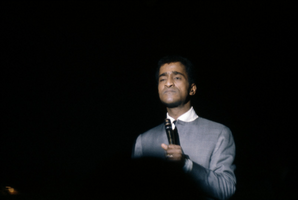
Slide transparency of Sammy Davis, Jr. onstage at the Copa Room, Las Vegas, February 1963
Date
Archival Collection
Description
Sammy Davis, Jr. performing at the Copa Room in the Sands Hotel in February 1963.
Image

Slide transparency of Sammy Davis, Jr. singing in the Copa Room at the Sands Hotel, Las Vegas, February 1963
Date
Archival Collection
Description
Sammy Davis, Jr. performing at the Copa Room in the Sands Hotel in February 1963.
Image
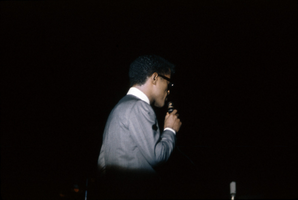
Slide transparency of Sammy Davis, Jr. onstage at the Sands Hotel, Las Vegas, February 1963
Date
Archival Collection
Description
Sammy Davis, Jr. performing at the Copa Room in the Sands Hotel in February 1963.
Image
